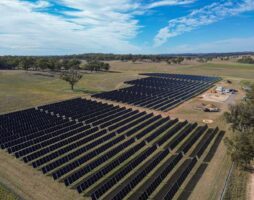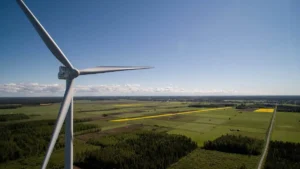PARIS: Prime minister Malcolm Turnbull has followed in the footsteps of former Labor PM Kevin Rudd, and announced that Australia would ratify the Kyoto Protocol – a move we flagged yesterday and one that could increase pressure on Australia to lift its near-term targets.
 In both cases, the gesture came in the weeks after the two prime ministers were elevated to their position, and followed predecessors bitterly opposed to the ratification, John Howard and Tony Abbott respectively.
In both cases, the gesture came in the weeks after the two prime ministers were elevated to their position, and followed predecessors bitterly opposed to the ratification, John Howard and Tony Abbott respectively.
In the case of Rudd in 2007, it was the first period of the Kyoto Protocol, and Australia had been a significant hold-out against the treaty. It earned him a standing ovation at the Bali conference, but little influence in Copenhagen.
Turnbull has now decided to ratify the second period of the Kyoto Protocol, at Paris, several years after it signed the treaty.
It doesn’t make a lot of difference in itself, but it was seen as an important gesture to developing nations while a new treaty that includes all countries is negotiated in Paris.
And, in any case, it would be churlish not to, considering that Australia will use a heavy overhang of surplus credits from the first period of the Kyoto Protocol to meet its 2020 targets. And legal access to international credits may help Australia meet its targets.
“Today, I announce that Australia will ratify the second commitment period of the Kyoto Protocol,” Turnbull said.
In his short speech, one of 150 by world leaders, Turnbull said that Australia was “not daunted” by the challenge of reaching a 2°C target.
“It inspires us. It energises us,” he said.
“We do not doubt the implications of the science, or the scale of the challenge.
“But above all we do not doubt the capacity of humanity to meet it – with imagination, innovation and the prudence that befits those, like us, who make decisions that will affect not just our own children and grandchildren but generations yet unborn.”
Turnbull continued to insist that Australia’s current target of 26 to 28 per cent reductions from 2005 levels represents one of the biggest per capita reductions of any G20 countries.
But critics say that does not represent an “energised effort” at all. It only represents cuts from 2005, a particularly high year of emissions before which Australia had made no cuts in emissions per capita.
Australia’s Kyoto II agreement was to reduce emissions by between 5 and 25 per cent from 2000 levels, depending on the actions of others.
“Ratification of the second commitment period of the Kyoto Protocol helps build confidence that Australia is serious about its international commitments,” The Climate Institute’s Erwin Jackson said.
“Australia’s 2020 target is woefully inadequate. Kyoto sets out clear conditions for lifting our game and the government will continue to be judged against these commitments.”
As Barack Obama said in his speech, quoting Martin Luther King, “there is such a thing as being too late.” Turnbull and his ministerial team have dismissed calls – from the Climate Change Authority, from Labor, and from the Greens – to lift their mid-term targets to something that equates to the 2°C target.
The significance of the Kyoto ratification is that it will allow the government and business easy access to international carbon markets without the need to go through back doors – as it reportedly has done in recent months.
Abbott was opposed to buying international credits, but the Turnbull government may support the idea, particularly in light of the absence of any major domestic abatement in its current policy suite.
Turnbull also said that Australia will contribute at least $1 billion over the next five years from our existing aid budget both to build climate resilience and reduce emissions.







